Choosing decorative plaster is a smart solution
A variety of building materials on the market can amaze any person’s imagination and satisfy the tastes of even the most demanding customer. Today, construction stores offer a wide range of various decorative plasters of foreign and domestic brands. The buyer only has to weigh all the pros and cons of this or that type of decorative plaster and make the right choice in favor of a sample suitable for all characteristics. The most popular among consumers is decorative stucco for concrete, which will be discussed in this article.

Wall decoration in the bathroom can be done with decorative plaster
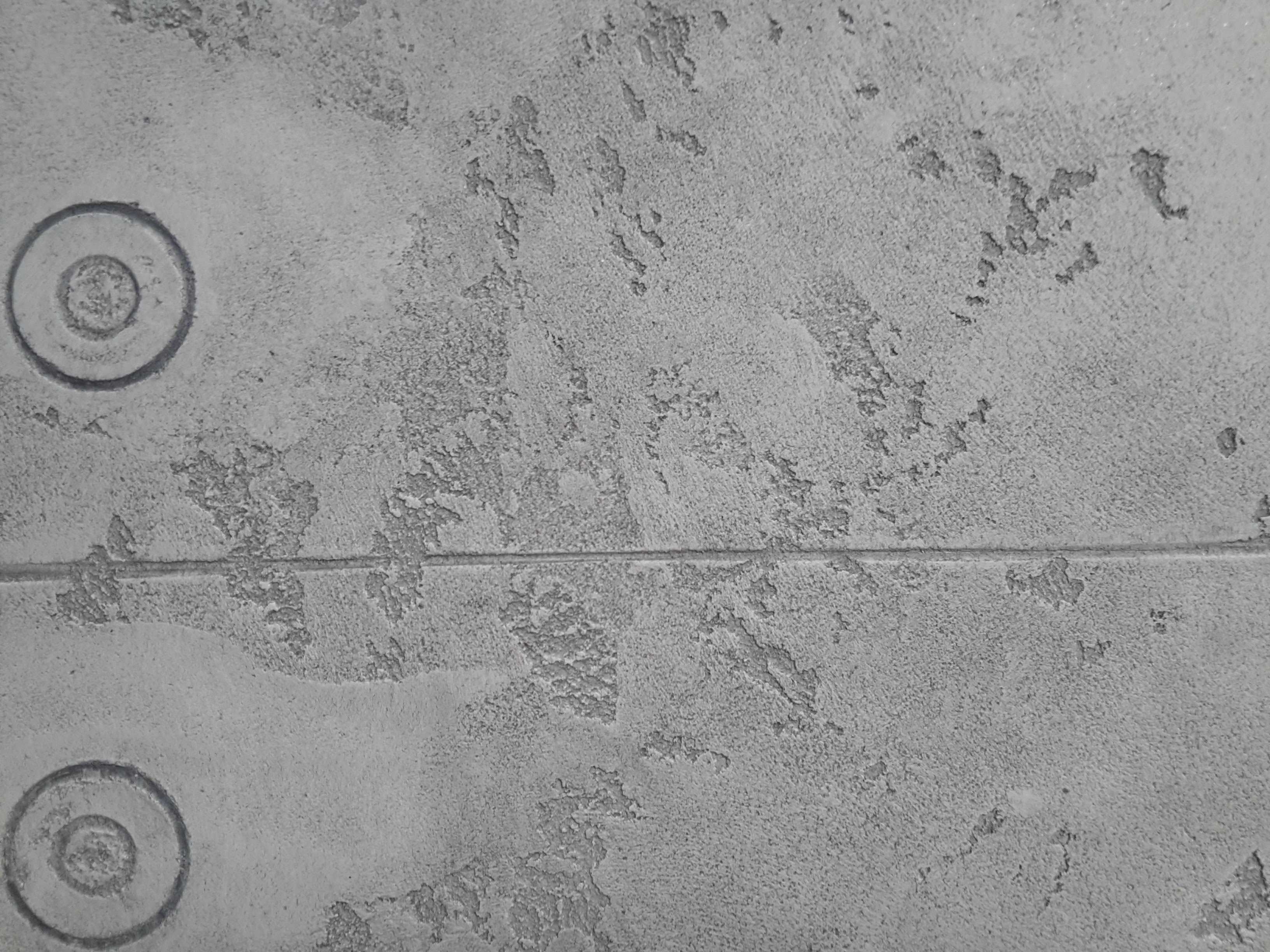
An example of decorative plaster for concrete
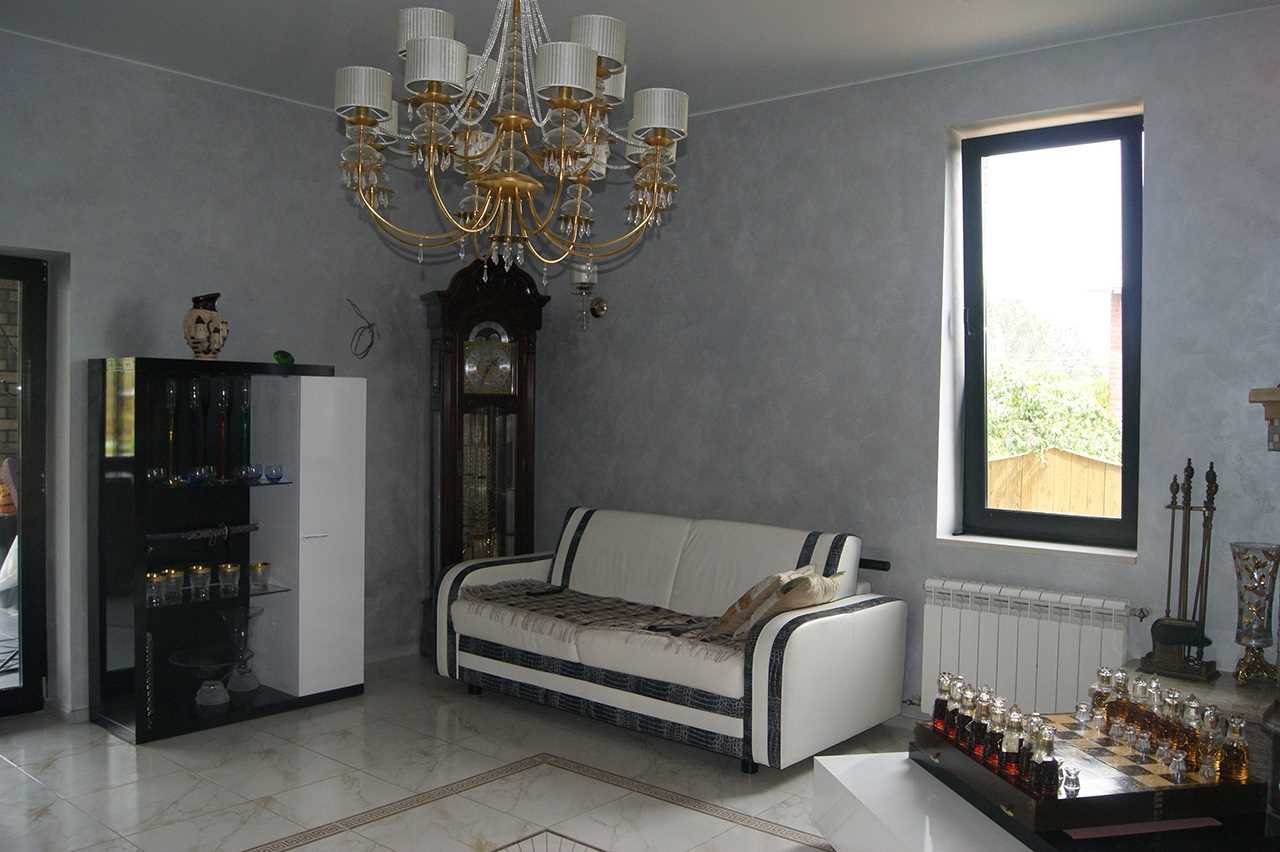
The design of the living room is designed in one color scheme.
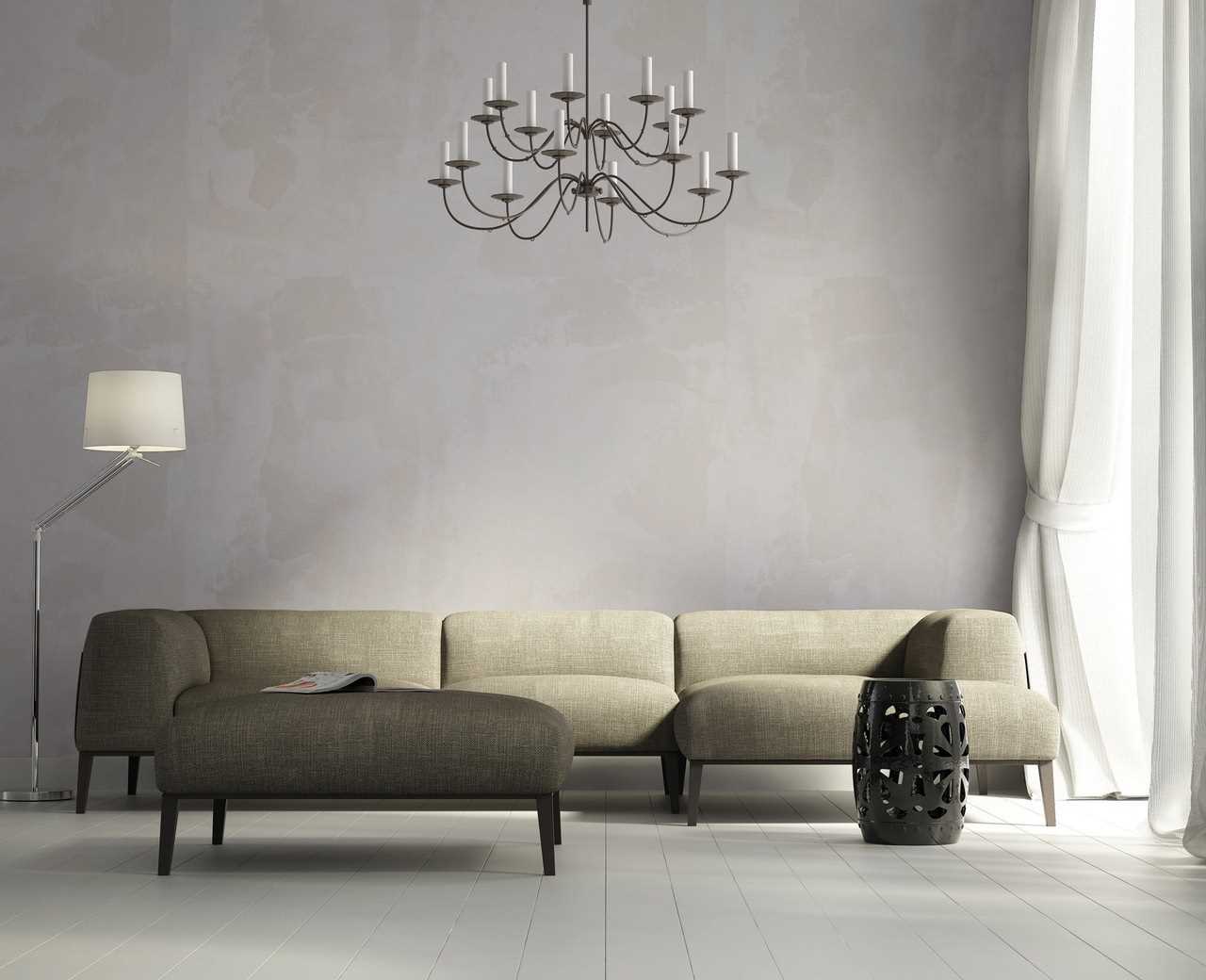
Decorative plaster is perfect for decorating the walls of the living room
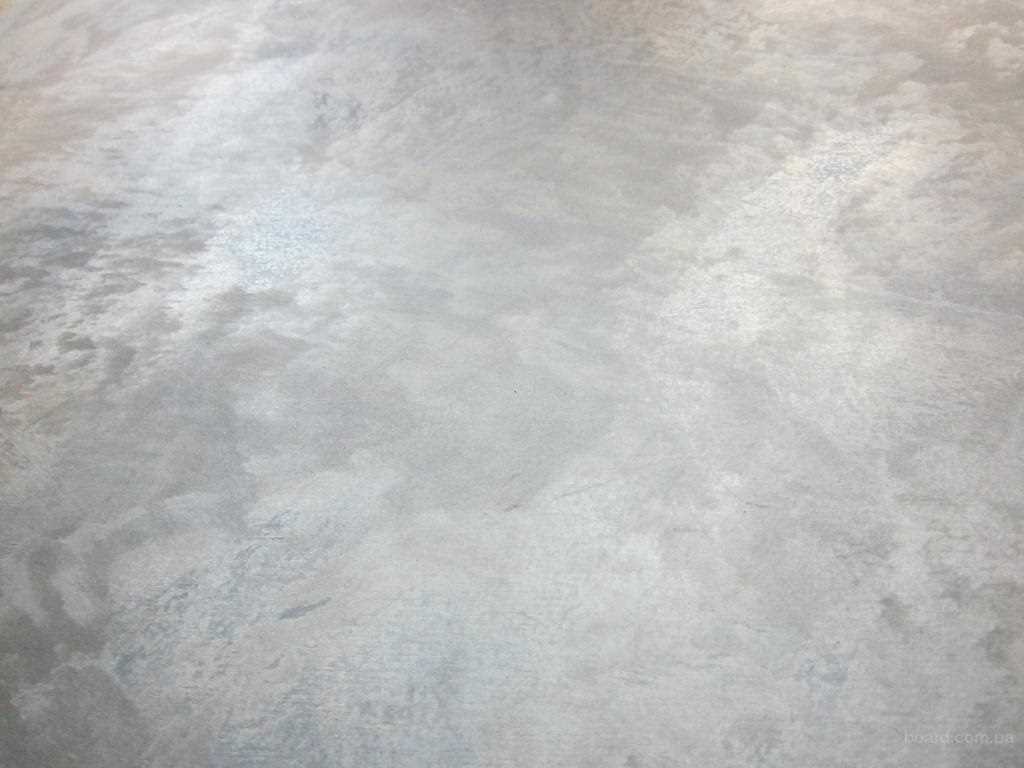
Bright stucco will illuminate the room
REFERENCE. Decorative plaster for concrete is a granular material with high adhesive and performance properties. The most popular examples are mixtures with a rust effect.
Let's take a closer look at the question of why this type of material has occupied a leading position in the niche of finishing compositions for many years already. A nontrivial wallcovering will give you the opportunity to create your dream home due to the variety of textures and colors of the material. Do you want to repeat the concrete effect on the walls and design your apartment in hi-tech or loft style? Nothing is easier! Thanks to a special application method, the mixture is able to imitate natural materials, in this case concrete. So, what are the advantages of decorative plaster?
- It has high adhesive characteristics, providing strong adhesion to surfaces;
- not cracking, masking minor imperfections, bumps and cracks on the walls;
- has good sound insulation properties due to its density and strength;
- practically not exposed to the negative effects of moisture, high temperatures, therefore, can be used not only for internal but also for external decoration;
- quite durable, yet easy to operate;
- differs in low cost in comparison with other types of plasters;
- due to its appearance, it will give respect to any room to respectability, the effect of naturalness and uniqueness;
- the composition is absolutely non-toxic and harmless to human health.
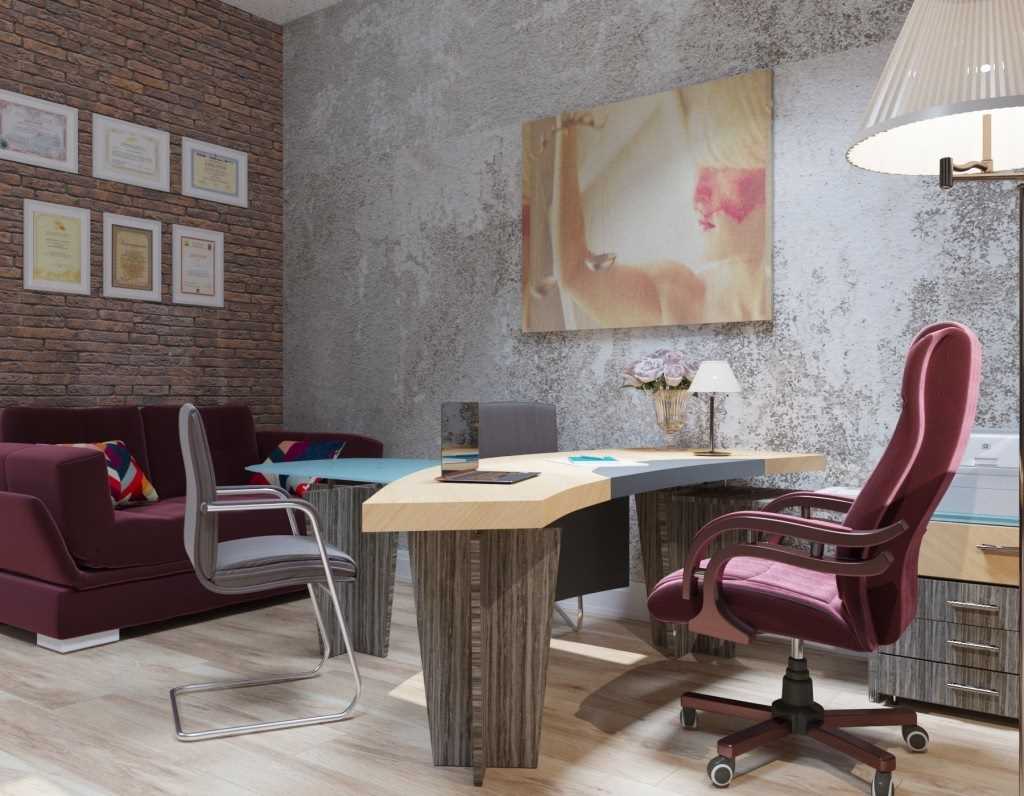
Practical living room design
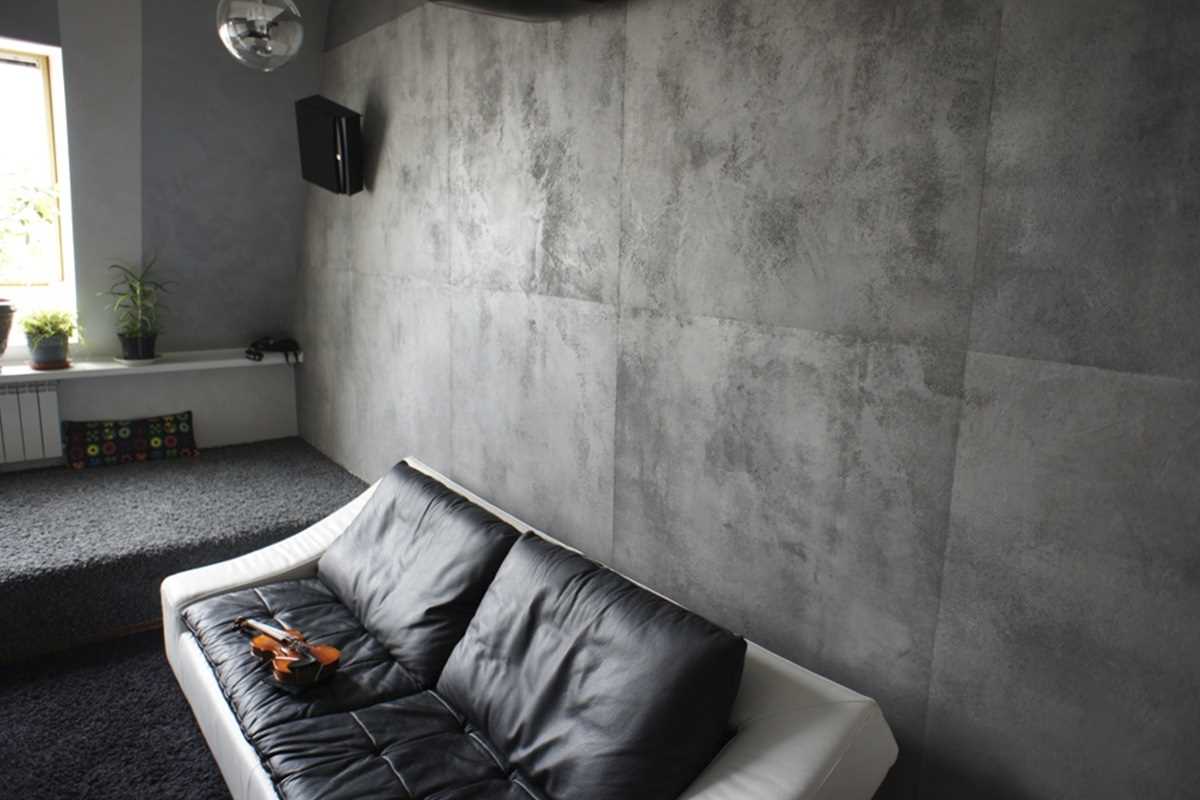
In the living room, wall decoration can be done with decorative stucco for concrete

The effect of rust on the wall will look unusual
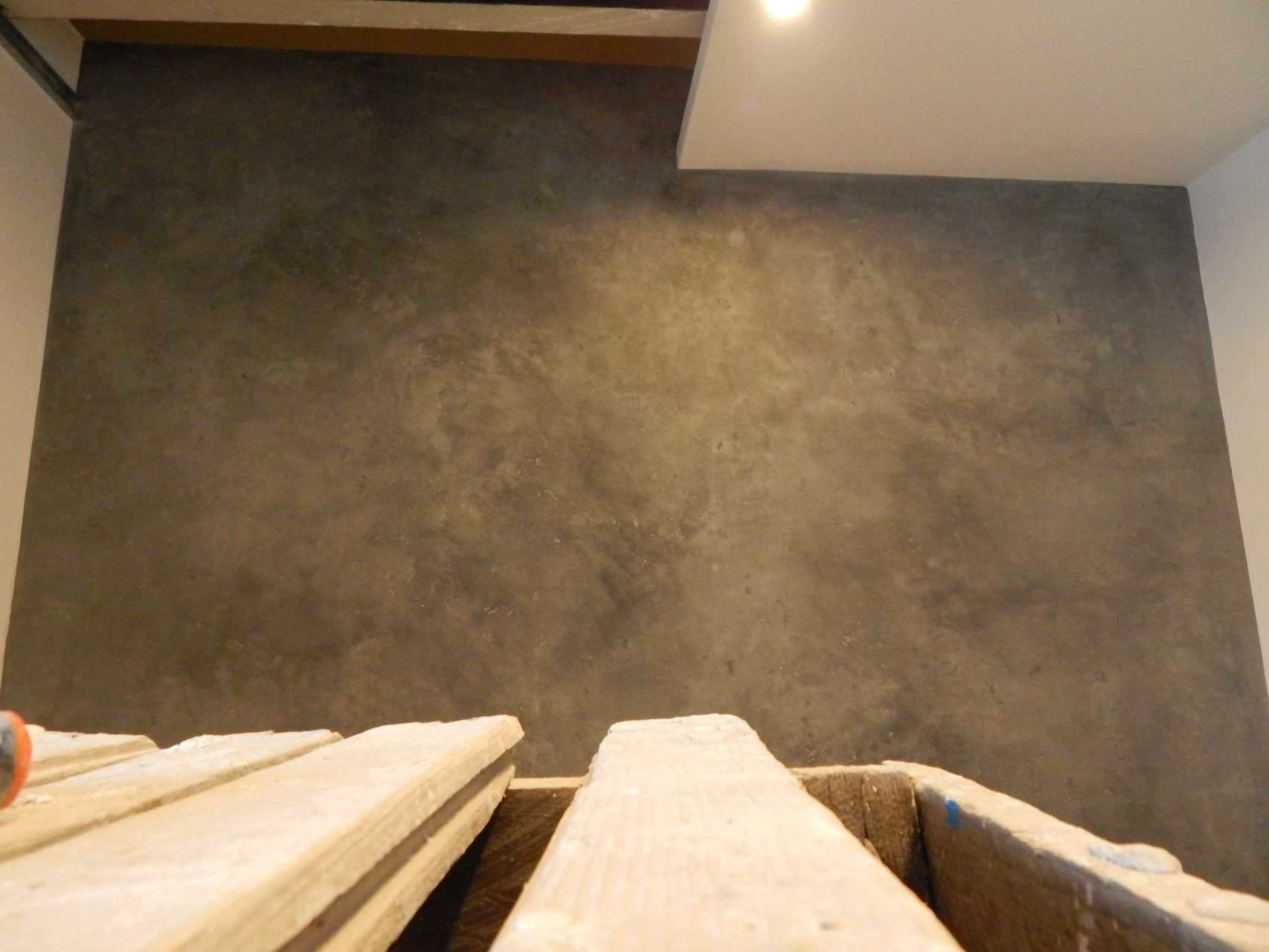
Wall decoration made with decorative plaster

Wall decoration can be done with decorative plaster
Choosing the right material for all characteristics will not be difficult. You should only know a few nuances that should be considered when buying wall coverings. The plaster should not be too liquid, this can significantly complicate the process of facing work. The material is sold ready-made, therefore, does not need additional dilution with water. It is very convenient and helps to save time at the preparatory stage. Please note, if large fillers are present in the composition, then it must be applied manually. As for the coating for the wall with a wide fractional composition, it is better to turn to the master for help. The fact is that large particles during inept use can fall out, significantly complicating the process.
TIP.Do-it-yourself decorative stucco for concrete is quite fascinating, but long and laborious. The mixture dries for a long time. This is perhaps the only disadvantage of the composition for concrete. You can speed up the drying process using a conventional hardener. If it was not found at hand, it would be advisable and effective to add a little PVA glue to the finished material.

A light shade on the wall will add sophistication to the room.
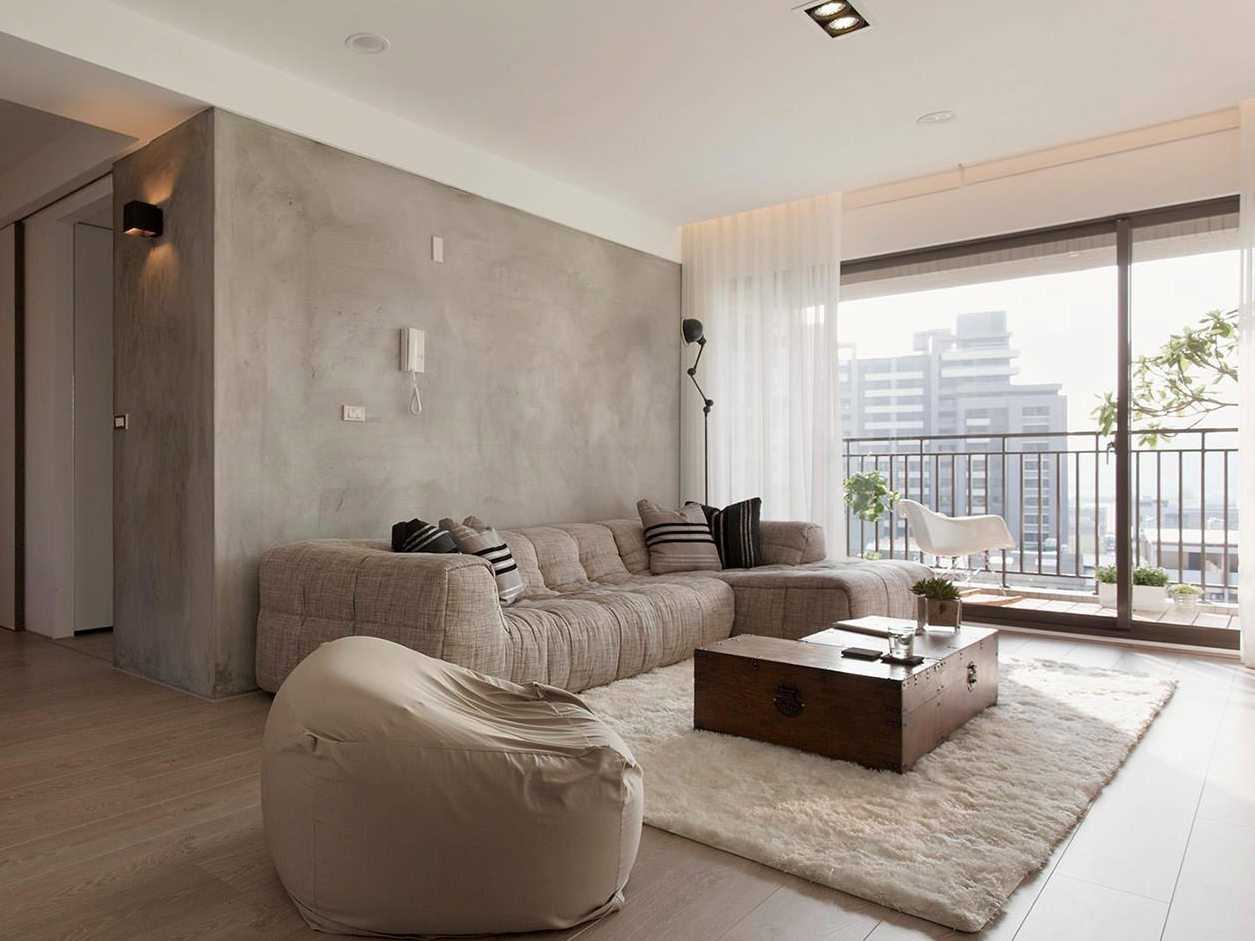
Stucco blends with room design
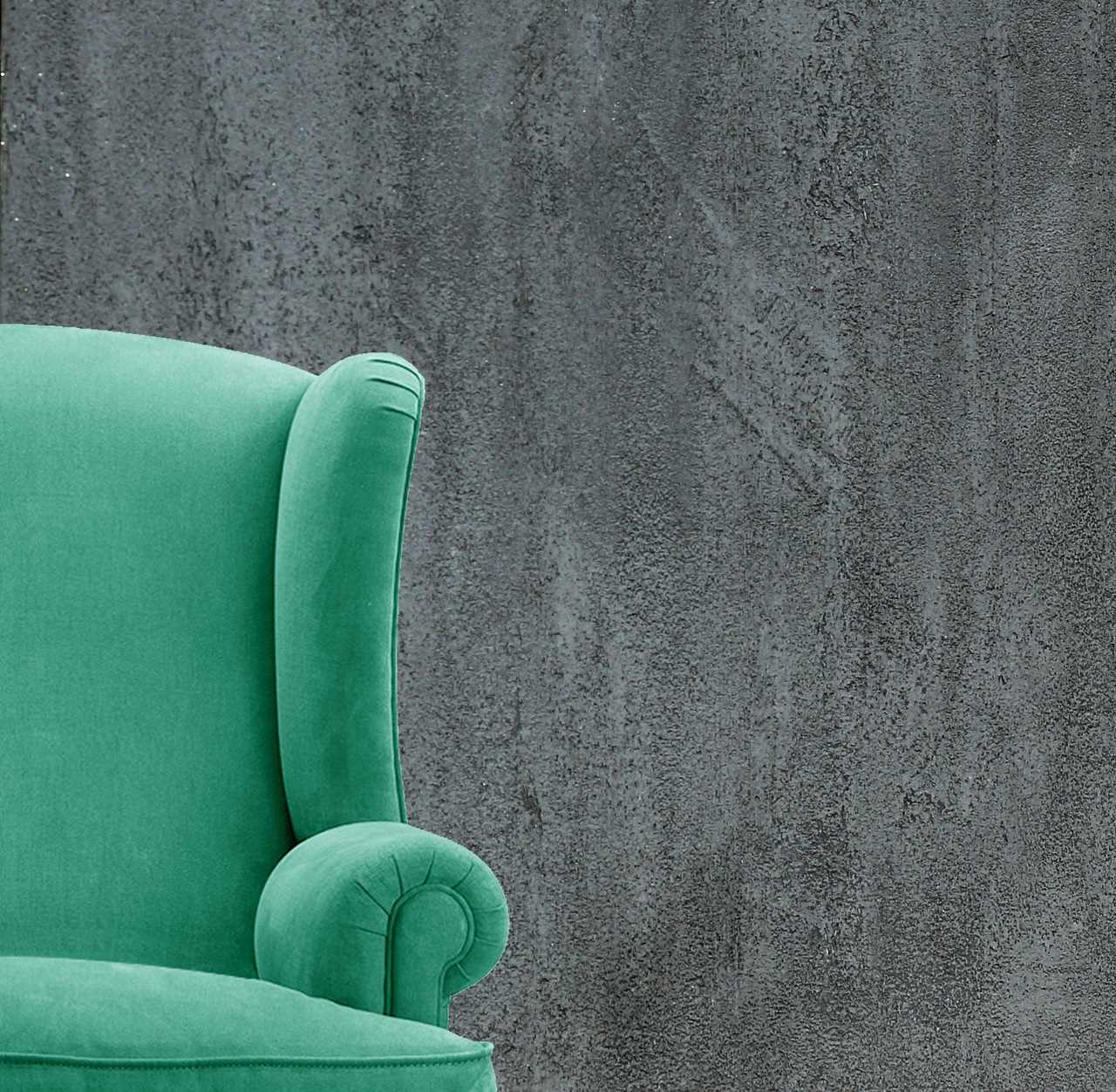
The stucco with rust effect will look unusual
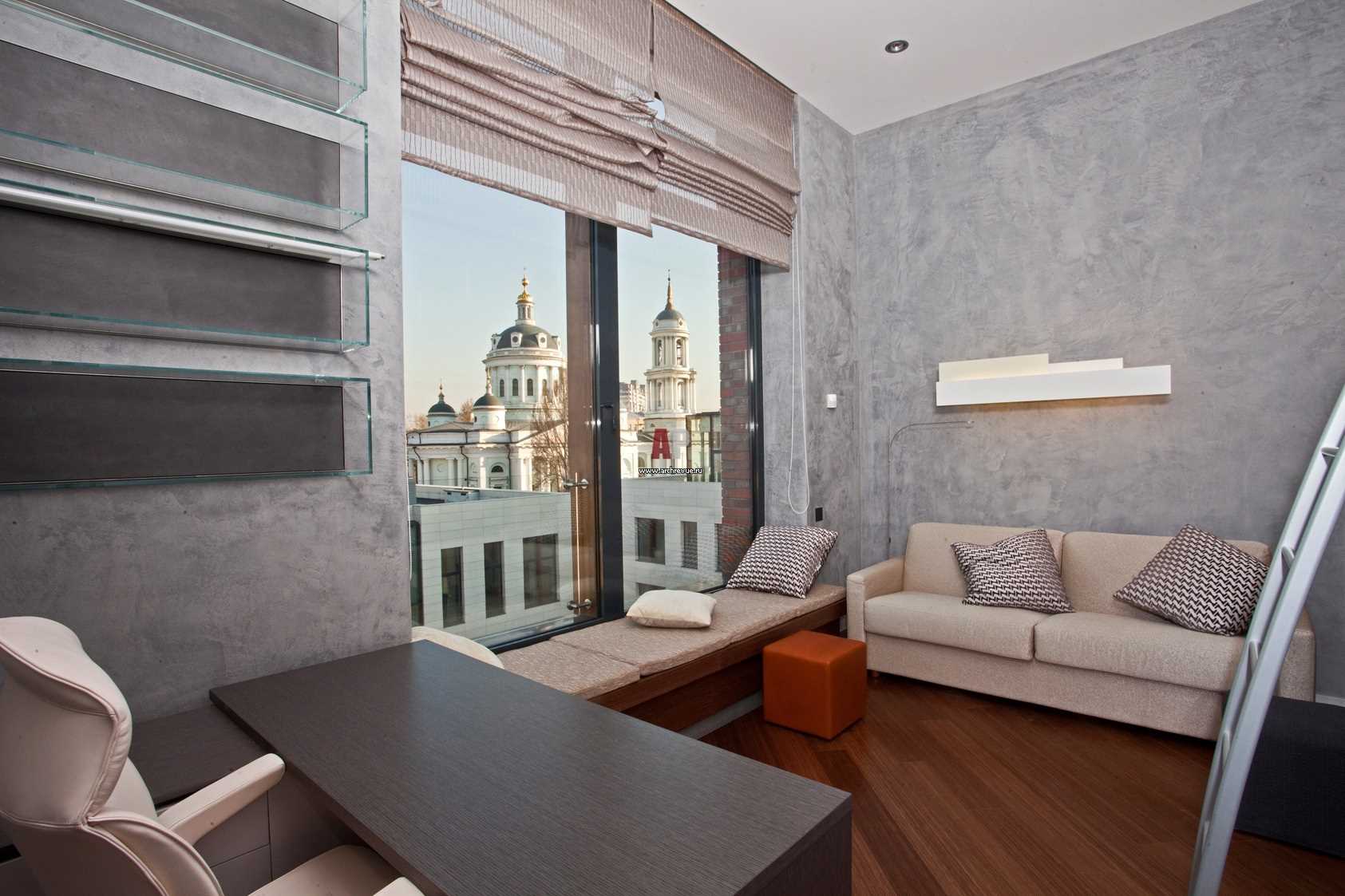
The walls in the living room can be made of decorative plaster
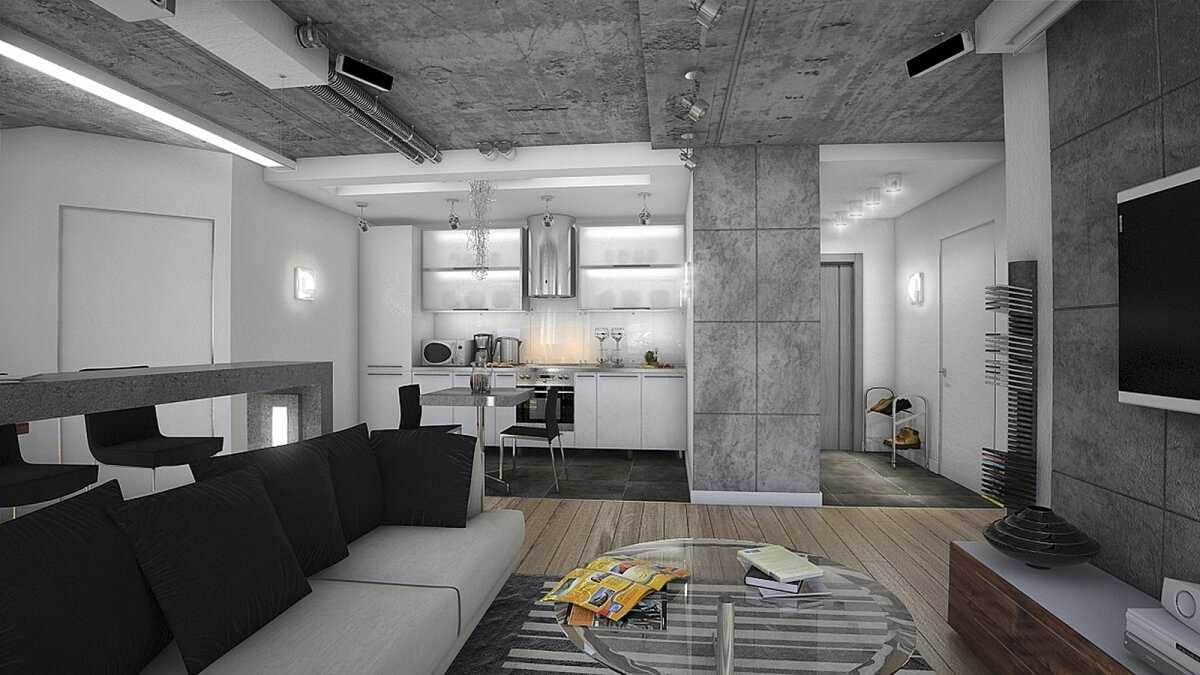
The interior design is designed in the same style.
Content
Application Methods
Progress does not stand still, this also applies to various building materials, which are improved every year by the manufacturer. In recent years, many solutions have appeared on the market, differing not only in composition, but also in texture, color and application method. If in the past years only manual coating for the wall was practiced, now there are several technologies for facing the rooms.
- Spray The easiest way to apply the solution. The mixture is applied to a broom, after which it is evenly distributed along the wall. This type of work can be easily done with your own hands without the help of a professional in this matter. When the layer dries, the surface is most often treated with a special glazing composition, obtaining the effect of gloss.
- Application by technology "smooth concrete". First you need to prepare the surface for applying the solution. This method will require a steel trowel, sponge and grinder with a suitable nozzle for concrete. The first stage includes the application of decorative plaster in a fairly dense layer, with small strokes distributed in different directions. This is done to get a natural effect. After a day, the most convex parts must be wiped with sandpaper and, if desired, the walls are treated with the sharp part of the trowel to correct the resulting pattern. The finish layer involves stretching the plaster over the entire surface. It is very important that the layer is thin enough. Therefore, the composition is recommended to be slightly diluted with water (not more than 2% of the amount of solution). After 12 hours, polishing is carried out and, if wall tinting is required. The final stage: the surface is processed by a grinder and wax.
- Safari technology. The method differs from the previous ones in that in this case we get the clearest picture. It is necessary to apply a layer of plaster on the walls, and then smooth with a trowel. This is best done after 15 to 20 minutes, when the composition dries a little, but remains plastic. To obtain an asymmetric relief, it is recommended to apply the mixture in different directions. Then, the walls are waxed and polished with special nozzles. The final procedure is performed after a day.
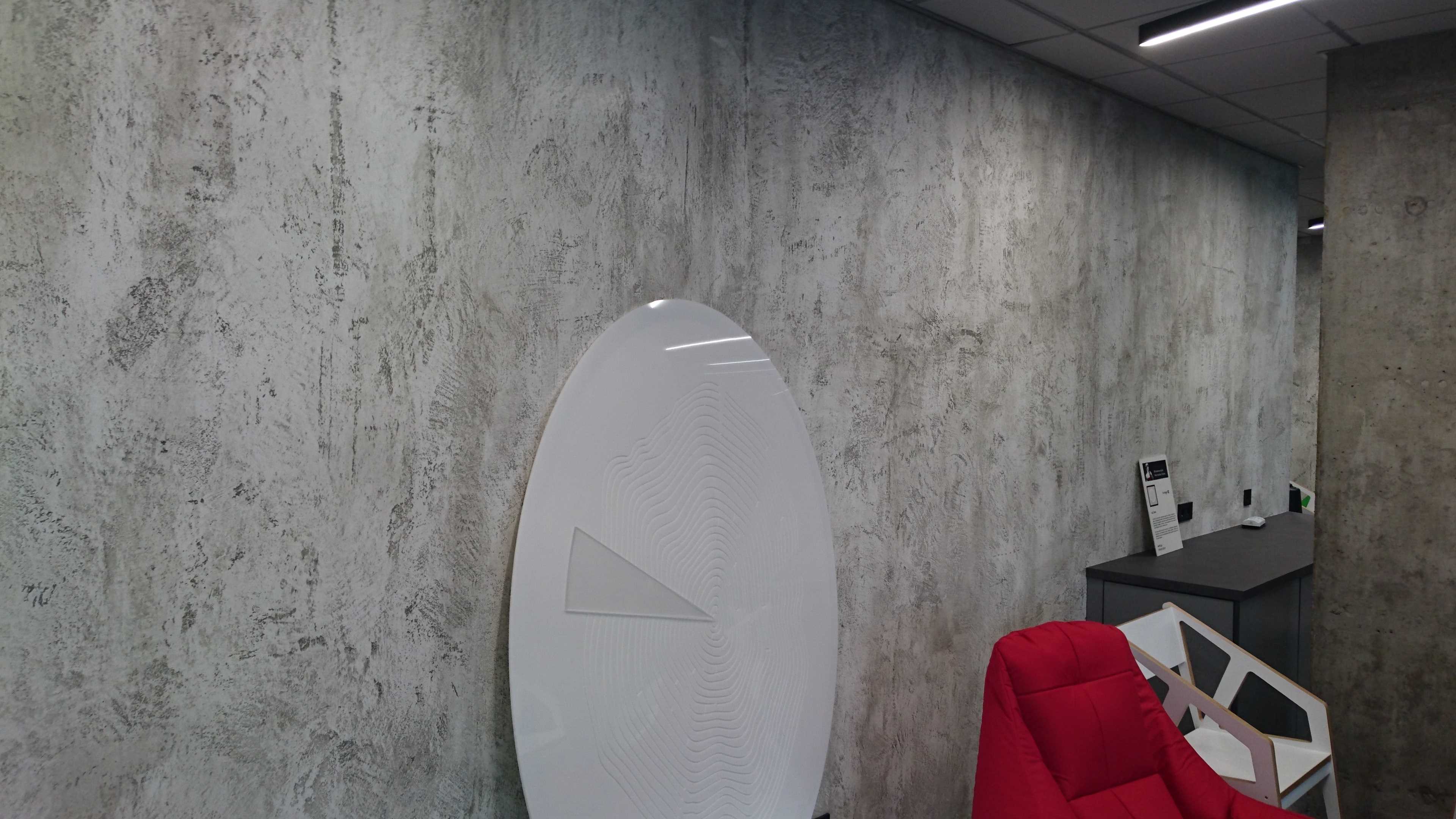
Decorative plaster for concrete is perfect for wall decoration
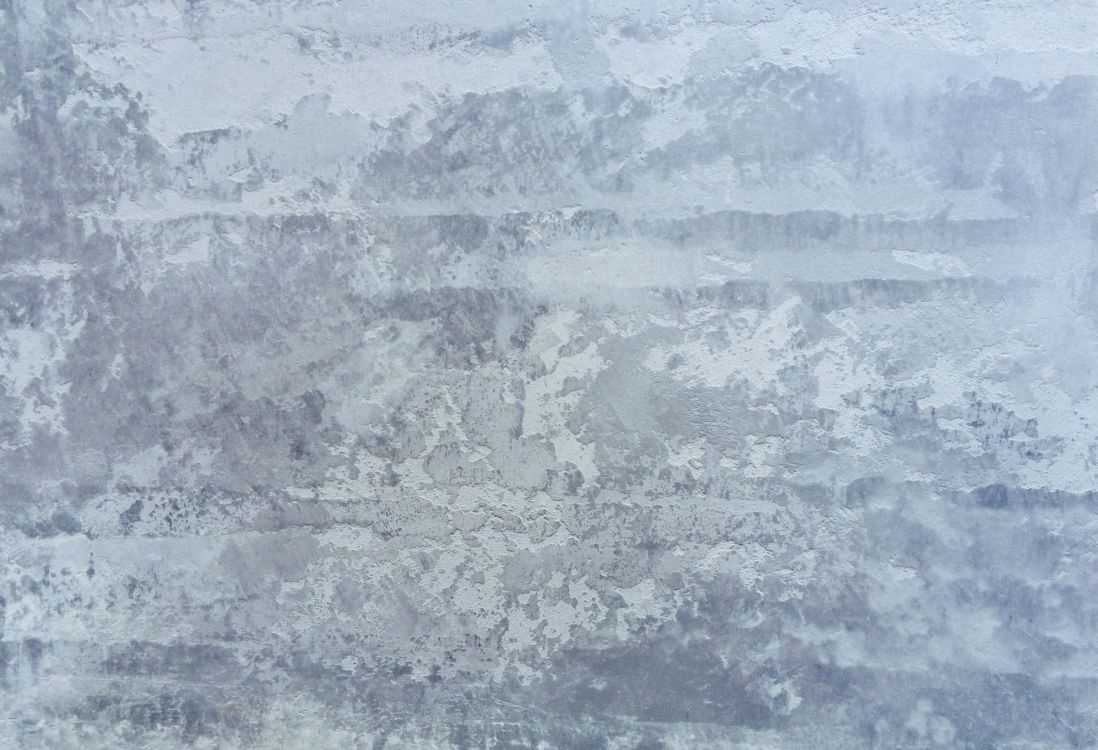
Wall decoration can be made from decorative plaster

Decorative stucco for concrete will perfectly complement the decor of the room
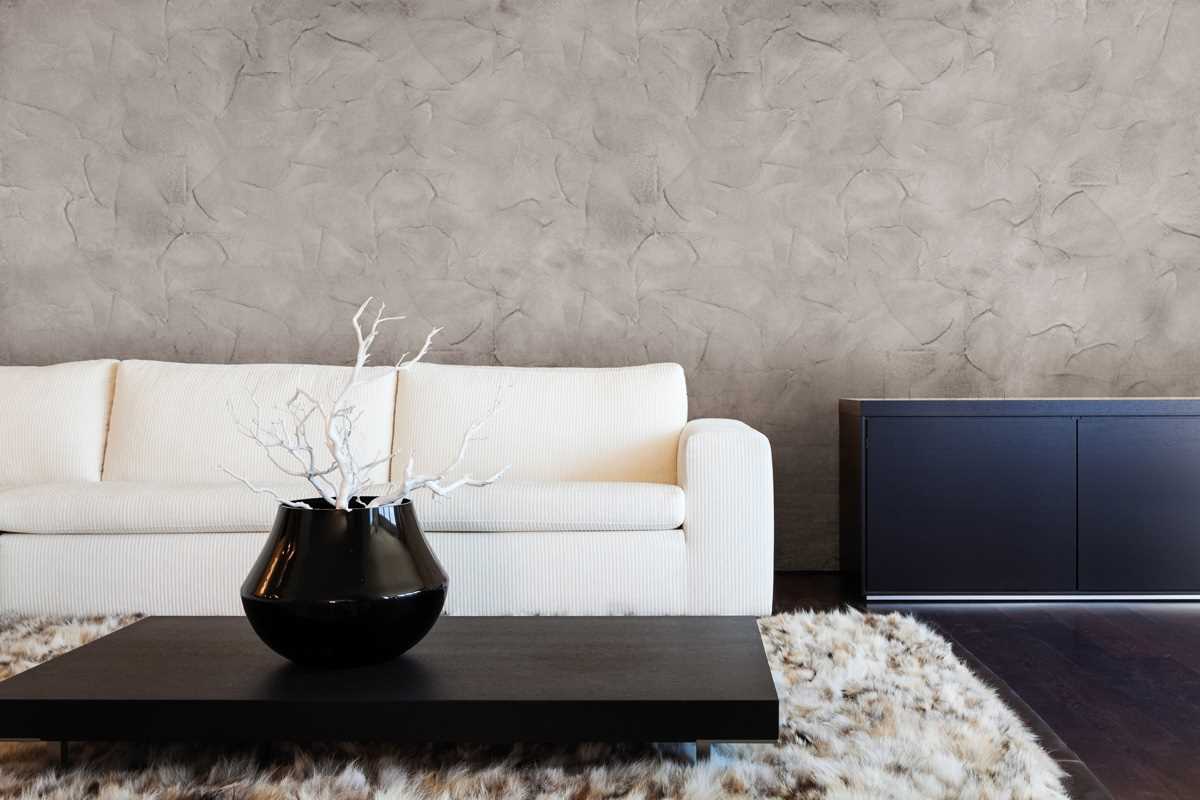
Decorative plaster will blend perfectly with the design of the living room.
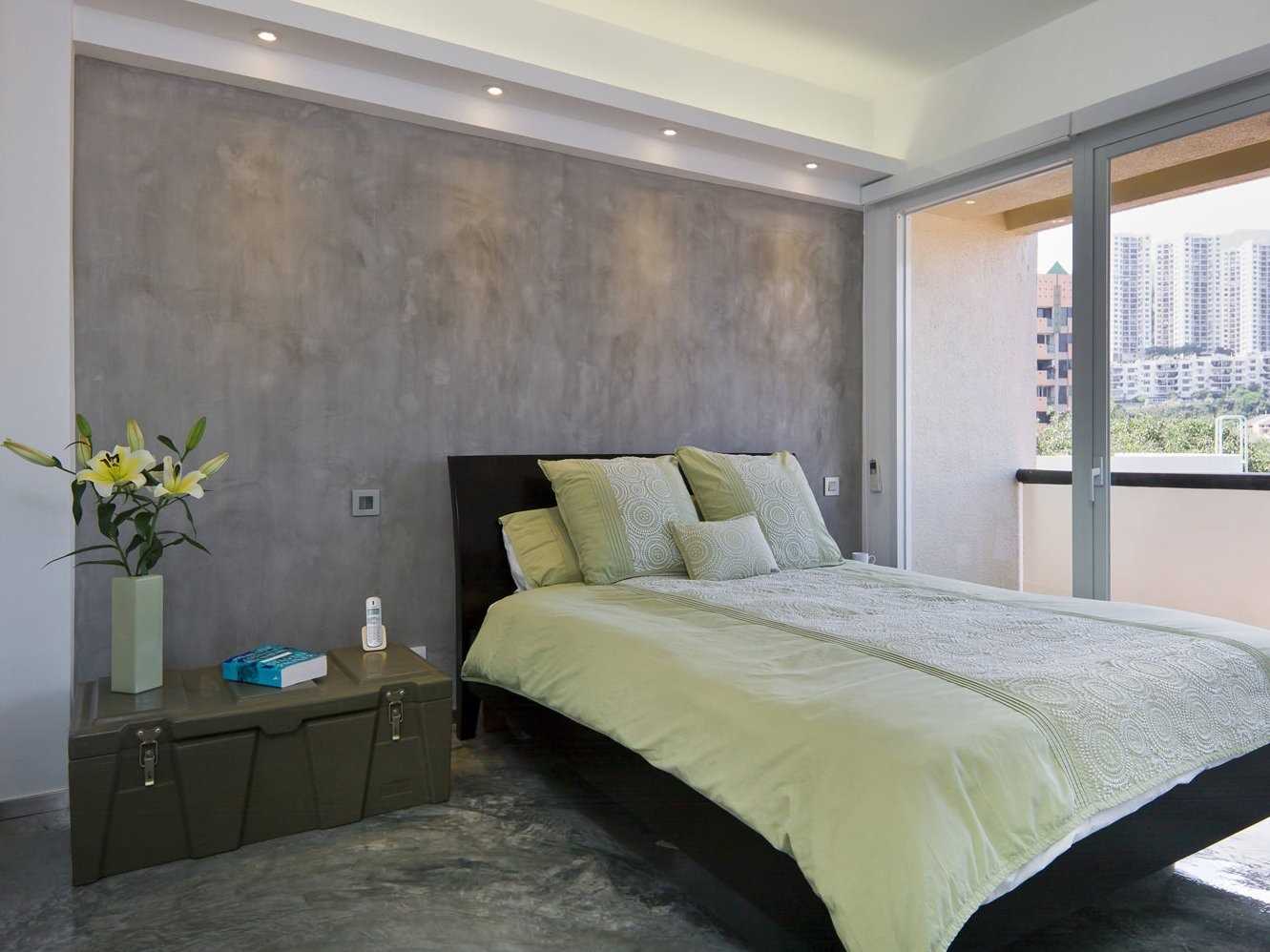
Decorative stucco in the bedroom will look unusual
Finishing Stages
Before starting any repair work, it is necessary to prepare the room. First of all, you need to remove the old coating. If the walls were plastered, then this can be eliminated with the help of water and a spatula. After applying water, let it stand for a while, it will be enough for an hour and proceed to remove the material.Carefully ensure that the walls do not contain grease stains, dust, debris from construction debris and other things that could interfere with the application of the finish solution. If the surface contains small cracks and chips - it does not matter. Stucco for concrete in the interior will skillfully hide all imperfections and bumps. Pay special attention to seams and joints, the most inaccessible places. When the surface is completely clean, proceed to the next step.
To ensure good adhesion, it is imperative that the walls be primed. The primer makes it possible to distribute the layer more evenly. Please note that the surface does not contain traces of fungus and mold. Otherwise, it is necessary to use a special composition that eliminates traces of the fungus and destroys parasites. The antiseptic is selected individually for concrete, if desired, the processed structures can be coated with a refractory emulsion. This approach to repair will significantly increase the life of living rooms.
IMPORTANT. Professionals recommend applying a primer in at least 2 layers.
After the primer process is complete, apply the substrate. As a substrate, a special paint containing sand is used. The method is especially good in apartments where humidity is high. The backing will improve the adhesion characteristics and eliminate cracking and deformation. Construction stores offer a wide range of these emulsions at very affordable prices.
At the end of the preparatory work, decorative plaster is applied with your own hands. Here you should adhere to the following rules: the more complex the drawing is planned to be made, the less thick the layers should be, gradually superimposed on each other. When the composition “seizes”, the walls must be worked with a smoothing iron, and after final drying, with a sandpaper. The finish is fixed with special wax or varnish. This will give the surface additional shine and significantly increase the life of the room. If desired, decorative concrete is sometimes painted in the desired shade and glazed.
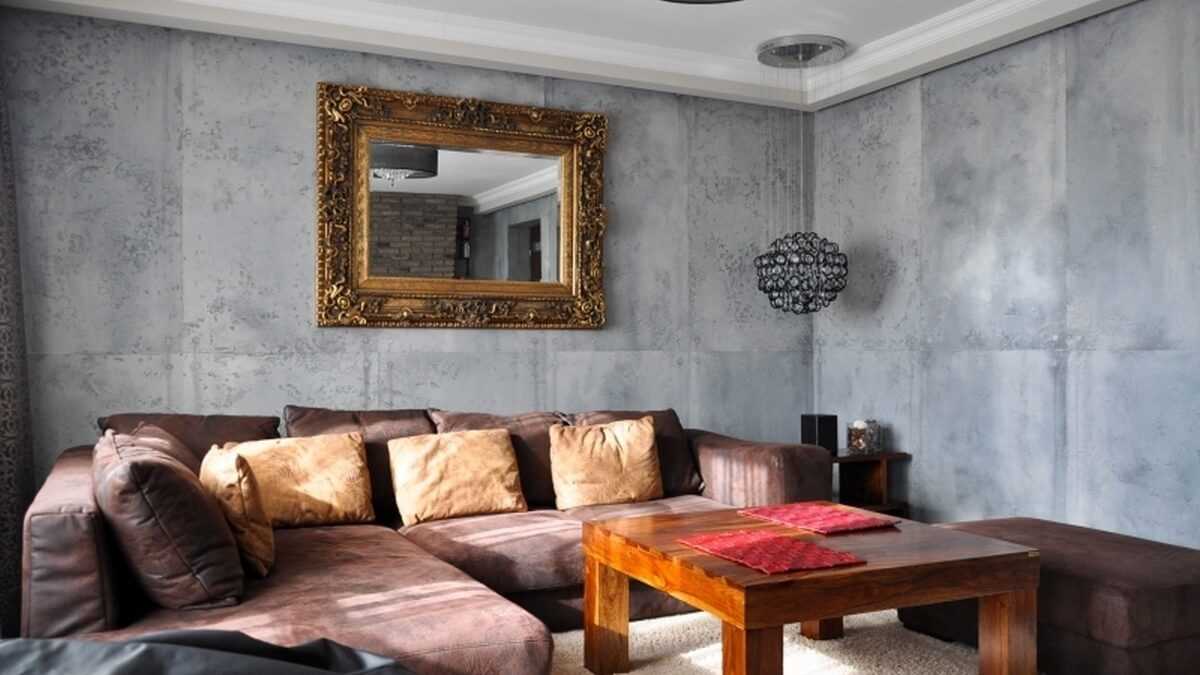
Wall decoration in the living room can be done with decorative stucco for concrete
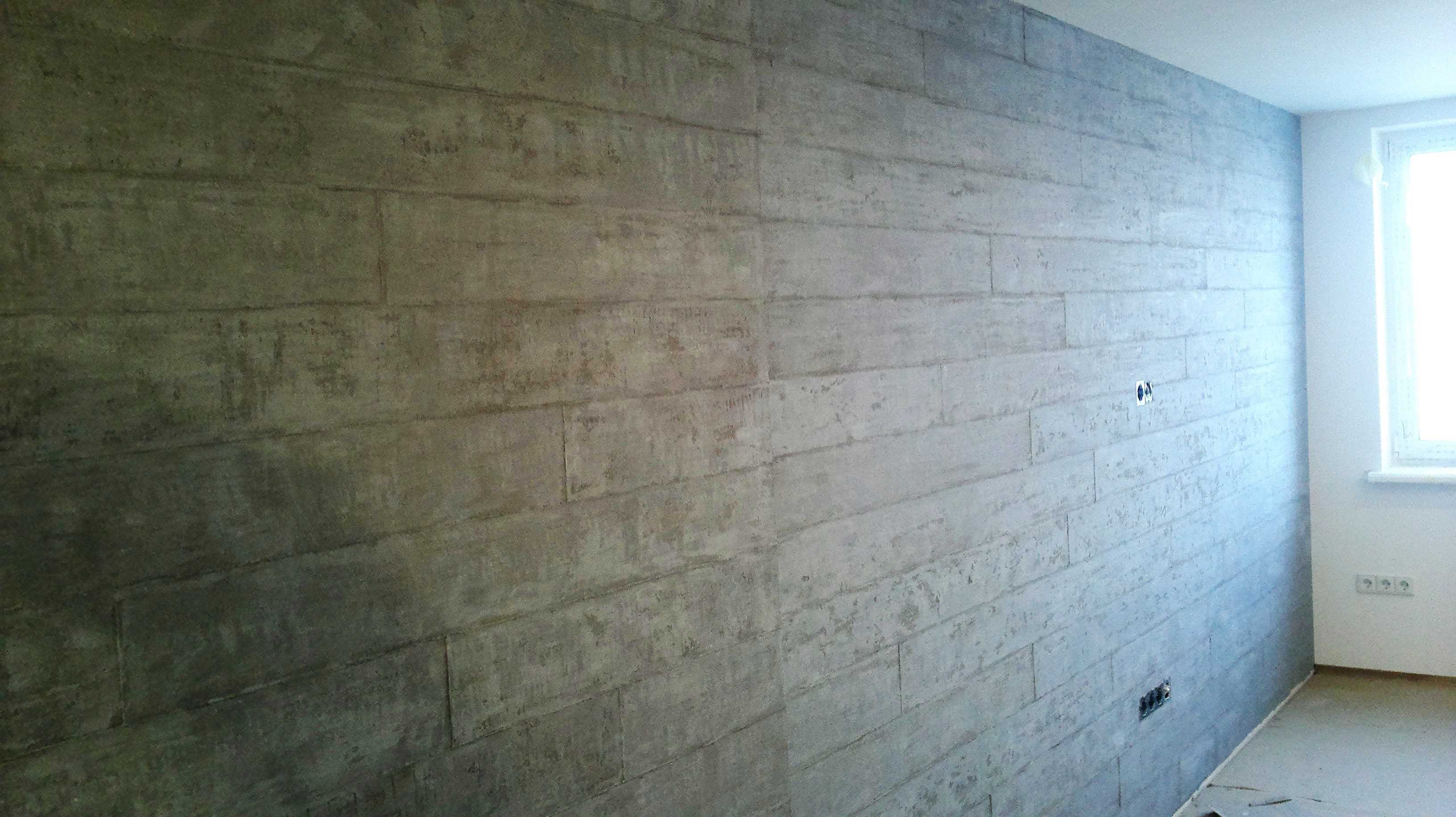
Stucco is completely different types
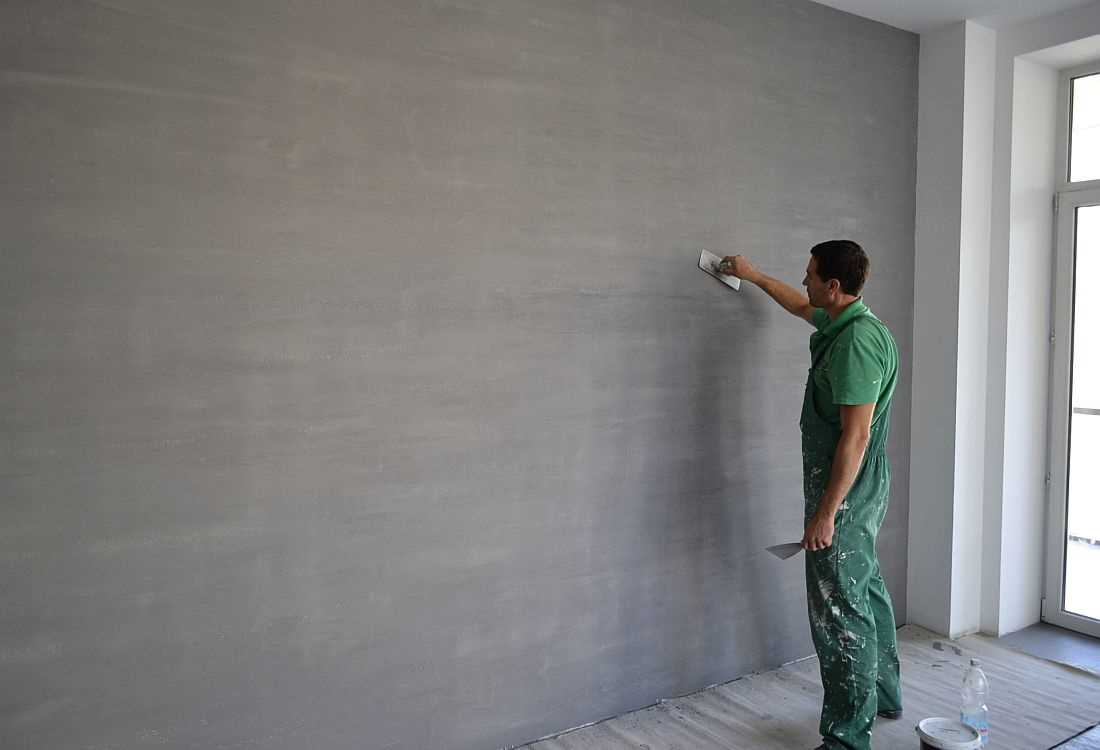
Plaster should be applied evenly.
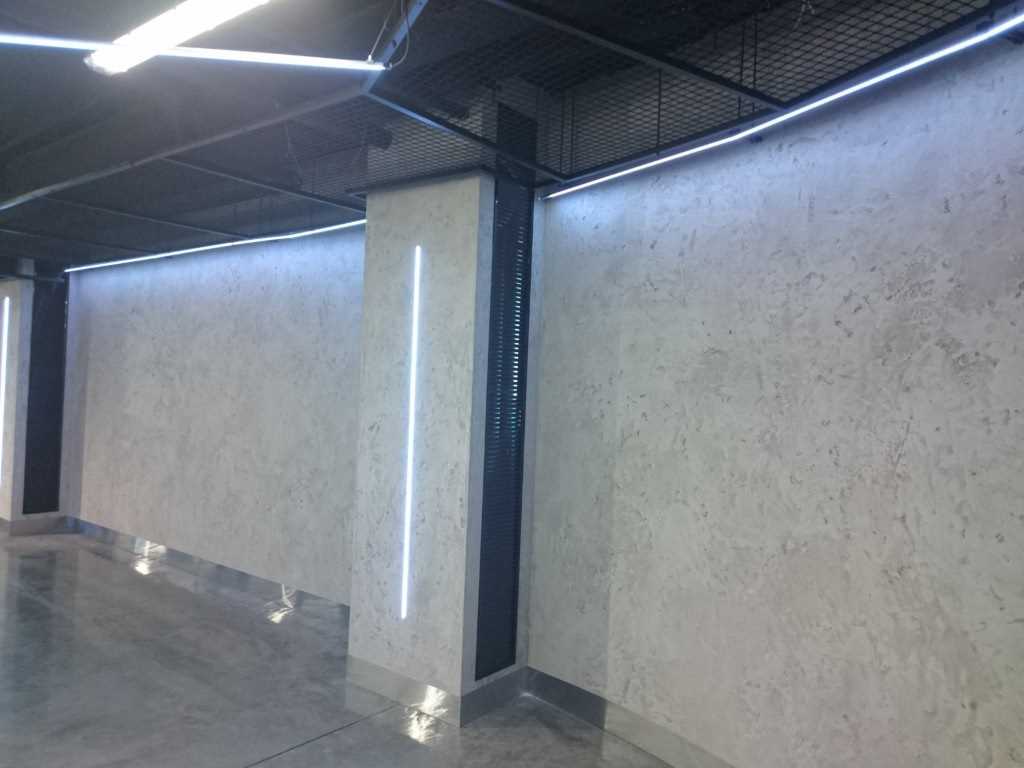
Stucco is perfect for wall decoration.

Concrete plaster looks very beautiful
Finally
As you can see, there is nothing complicated in the repair of a home made by yourself. It is enough to adhere to a few simple recommendations, and the updated apartment will delight its owners for many years. For work, you will need a standard set of tools available to any owner. A little patience, imagination and hard work - and here you are the owner of modern housing, decorated in the latest trends.
Video: ART-BETON. LOFT-style decorative plaster
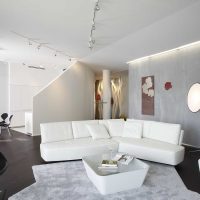
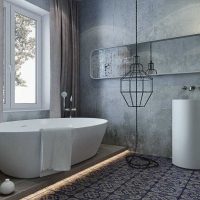
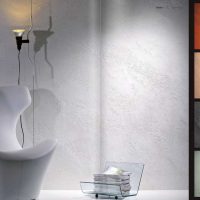
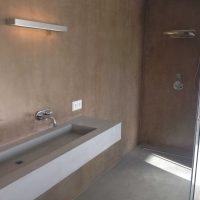
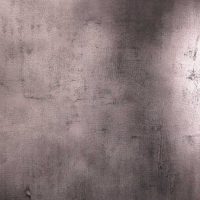
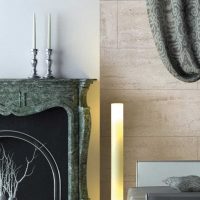
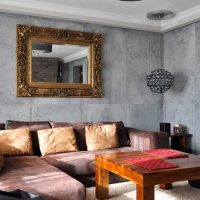

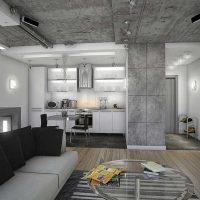

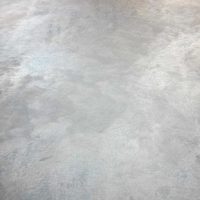
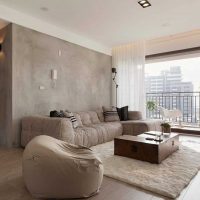
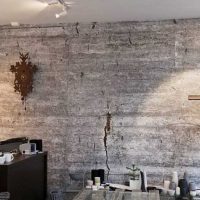
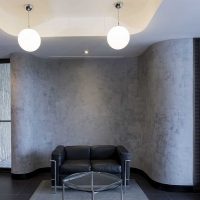
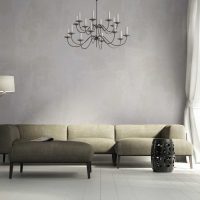
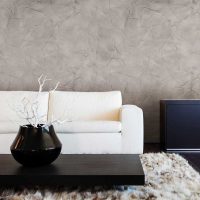

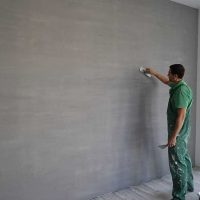
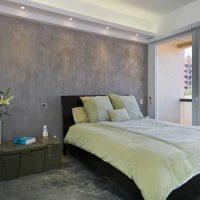
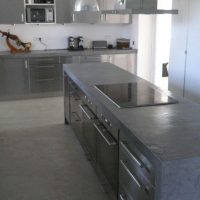

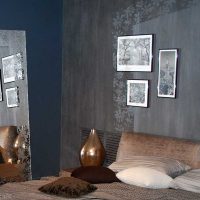
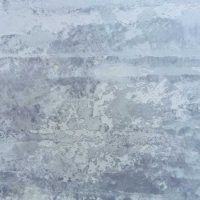
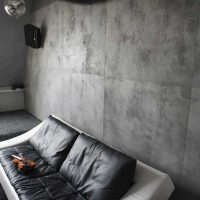
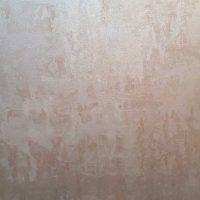
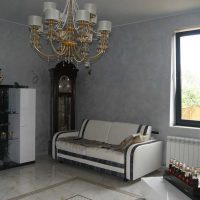


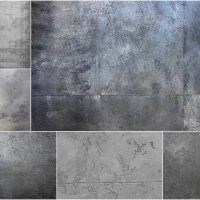
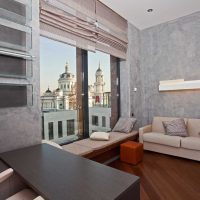

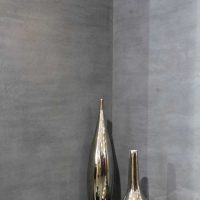
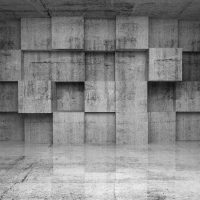
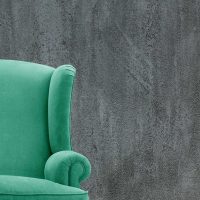
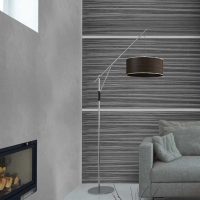

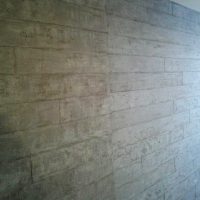
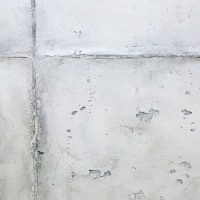
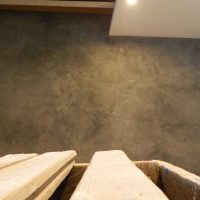
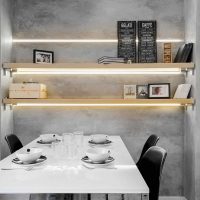
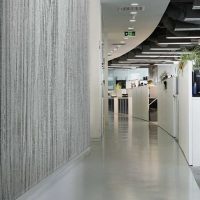
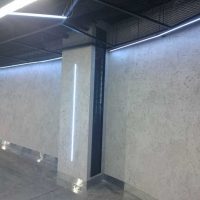
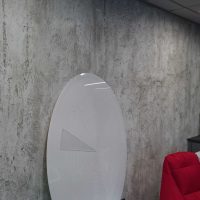
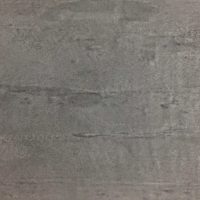
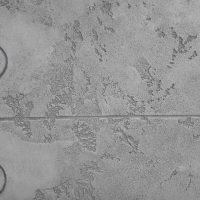
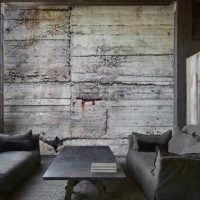
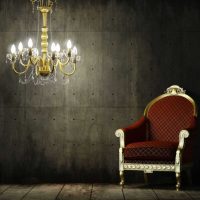
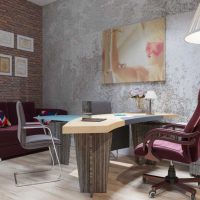






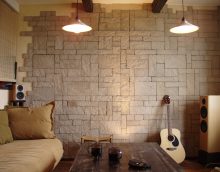
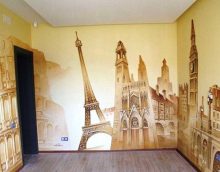

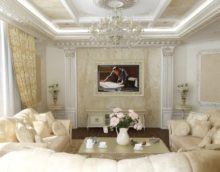
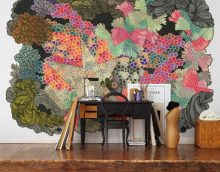





Please tell me how concrete art is safe for children?